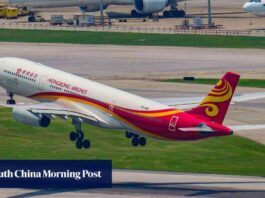Everyone remembers the war. And also the road that has travelled Liberia. 73 years ago that the country did not know a change of power peaceful and of the three previous presidents, two were assassinated (William Tolbert and Samuel Kanyon Doe) and the third, Charles Taylor, is in jail for war crimes.
Now, the small West African nation bathed by the beautiful and fierce waves of the Atlantic, is preparing for the electoral challenge. After 14 years of peace under the chairmanship of Ellen Johnson Sirleaf, and even with the images of the fresh conflict atrocities in memory, Liberians must choose their new leader among 20 candidates.
The favorite pool is drawn in a very heterogeneous palette in which we find the famous and popular footballer George Weah, the executive vice-president of Coca Cola, Alexander Cummings or the current vice-president of the country, Joseph Nyumah Boakai, who, in spite Being the option of the party at present to power, it has no support from the president. But there is also the former chief of war, Prince Johnson, the man who, in front of the chambers, tortured and assassinated Liberia’s first “autochthonous” president.
Liberia was the first state to achieve independence in Africa, in 1847, although its autonomy was very relative. Founded by freed U.S. slaves, with a traced American constitution and adopting the name of President James Monroe to baptize the capital, Monrovia, the “Américo-Liberians” — called Congos — became the elite and ruled Repressive for almost a century and a half, even though they represented only 5% of the population. Until, in 1980, a group of indigenous soldiers led by Doe gave a coup d’etat and settled in power.
The division between the autochthonous and the Congos, although diluted, still exists. The concept has been extended to a class meaning rather than of provenance. Thus, it is not just the surnames of American dye or the origins that mark the label, but the fact of entering the small environment of the elite.
The challenge of the elections is presented to the Liberians as an opportunity for change, as is repeated in the street. With a generation of children who were soldiers and are now adults, with an ex-guerrilla aspiring president and with the ghost of Charles Taylor flying over — George Weah has chosen Taylor’s ex-wife as his commitment to the Vice-Presidency and Taylor himself has had Contact with Weah — the past insists on an act of presence, before a population with sequels that does not want to go back.
